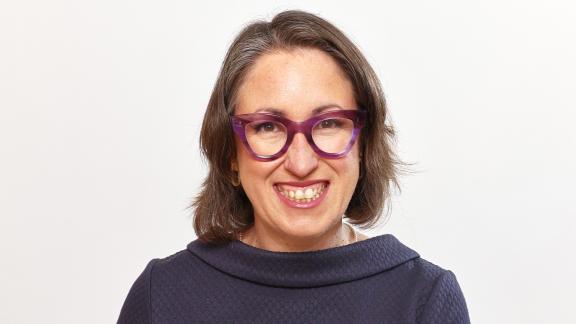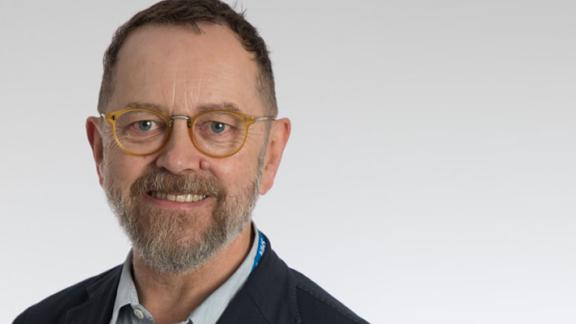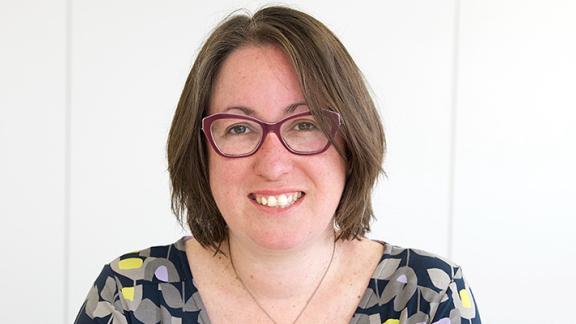What LGBTQ+ history tells us about healthcare staff today

What does it mean to be an LGBTQ+ person working in healthcare today? With this year’s LGBT+ History Month celebrating the contribution of LGBTQ+ people to medicine and healthcare, conversations keep pivoting to this fundamental question.
In the words of the outgoing chair of the NHS Confederation’s Health and Care LGBTQ+ Leaders Network, Peter Molyneux: “Thinking about our history is important in terms of how it informs our present and future.” But for LGBTQ+ people, that history can sometimes be out of reach. It’s the sad reality that many LGBTQ+ people who have wanted a successful career in healthcare felt they had to keep this part of their identity hidden – and some still do. Others who might have achieved great things were prevented from doing so because of their sexual orientation or gender identity.
When I got my first job in a hospital, I wondered, ridiculously, if I was the only gay doctor in Scotland
Healthcare trailblazers
That’s why it can be hard for LGBTQ+ people to look back and find our role models. Even with historians uncovering new insights, our visible trailblazers in healthcare have until recently been few and far between. When I got my first job in a hospital, I wondered, ridiculously, if I was the only gay doctor in Scotland.
But we have always been here, even if we have not always been visible. Like James Barry, the pioneering army surgeon and physician who graduated from medical school in the early 1800s and is now generally recognised by historians as a trans man. Or Sophia Jex-Blake, the first doctor to practise medicine as a woman in Britain. She graduated from medical school in Edinburgh in 1869 and went on to found two women’s medical schools, and she lived with another woman understood to have been her romantic partner.
Cecil Belfield Clarke, who grew up in Barbados and went on to study medicine in Britain. He worked as a general practitioner in London after World War 2, created the dose calculation method for children’s medicines still used today, and lived with his male partner. Even Florence Nightingale, who is famed for her contributions to nursing and statistics. Less frequently mentioned is that her writings indicate that she was probably queer: “I have lived and slept in the same beds with English countesses and Prussian farm women. No woman has excited passions among women more than I have.”
Reflecting on the past
There were historically good reasons for keeping quiet about being an LGBTQ+ person working in healthcare. Many countries, including the United Kingdom, deemed homosexual behaviour a criminal offence. The World Health Organization designated it an illness. Even in the recent past, ‘afflicted’ health professionals have been struck off medical registers, court marshalled from military positions, fired, locked up, ‘treated’ with a variety of ineffective and often horrifying interventions under the description of so-called ‘conversion therapy’, amongst other punishments. In this context, the simple fact that LGBTQ+ people can practice and succeed in the NHS today without the need for disguise feels in some ways like astounding progress.
There are huge productivity and innovation benefits when we don’t have to expend energy hiding our sexual orientation or gender identity
And it is vital. There are huge productivity and innovation benefits when we don’t have to expend energy hiding our sexual orientation or gender identity. Being more open, and feeling safe, enables us to thrive and perform better at work. The NHS needs that.
Where are we now?
But I was struck by the number of people talking at LGBT+ History Month events this year who said they feel ‘lucky’ to be in a time and place where they can live freely and purse their chosen career. Even as we still encounter prejudice and discrimination, in Britain, it is not a crime to be gay. The World Health Organization no longer designates LGBTQ+ identities as an illness. If a pandemic today predominantly affected LGBTQ+ people, health workers would probably not refuse to treat us as they did for HIV/AIDS.
But of course, luck doesn’t have anything to do with being able to live and work without prejudice and discrimination. After all, it is still illegal to be LGBTQ+ in more than sixty countries in the world and many jurisdictions are currently working to make things harder for us, from banning books to bringing in criminal charges and punishments, including the death penalty.
...it is through the hard work of people dedicated to equality throughout history that we have got to this point – including in the NHS
Personally, I feel grateful (and guilty) to live in this place in this moment in history that feels relatively safe, notwithstanding that the safety sometimes feels precarious. But it is through the hard work of people dedicated to equality throughout history that we have got to this point – including in the NHS. Initiatives like the Rainbow Badge scheme and resources like the NHS Confederation’s Health and Care LGBTQ+ Network’s LGBTQ+ Inclusion Framework are helping make sure the NHS is a place that includes and respects everyone.
What needs to happen next?
For an NHS that depends on the recruitment and retention of excellent workers, helping staff feel included and able to work at their best is an imperative. We know the course of inclusion never did run smooth. Progress can be lost, or it can be strengthened, depending on the decisions that we all make every day.
LGBT+ History Month offers an opportunity to reflect on what has come before, where we are now, and where we want to go. The NHS Confederation’s LGBTQ+ Leaders Network has developed resources that are free to access and may support employers, managers and colleagues as we move together towards the future.
Dr Layla McCay is the NHS Confederation's director of policy and executive lead of the Health and Care LGBTQ+ Leaders Network. You can follow Layla on X (formerly Twitter) @LaylaMcCay


